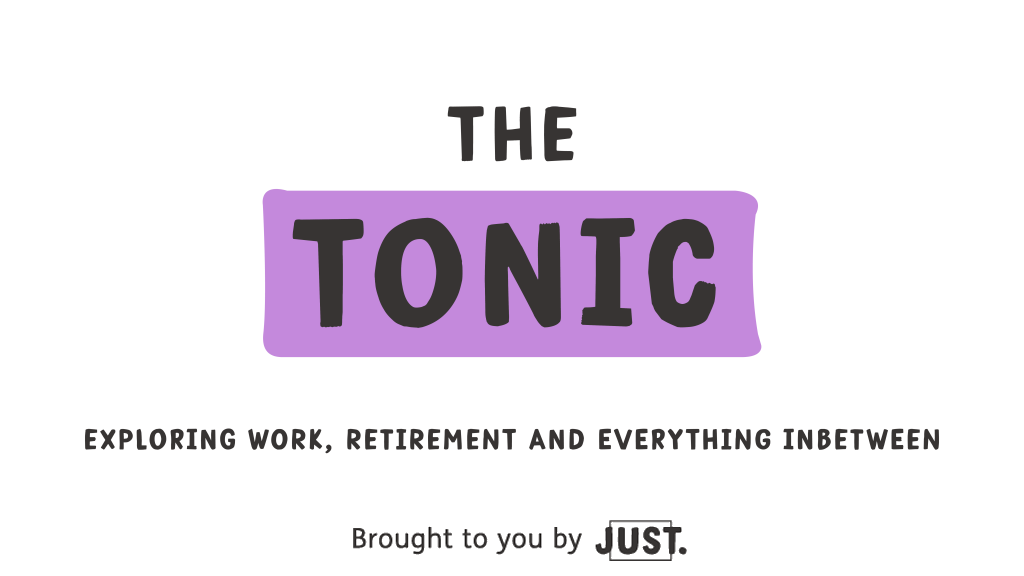For those with the ability to choose a career change mid-life it can be refreshing new start, although the decision doesn’t come easily.
The Americans call it an ‘encore’. The Brits, rather uncharitably, call it a mid-life crisis – or ‘manopause’ if you are a male of the species. The truth is, as always, somewhere in between. We’re talking a mid-life change of career.
It’s possibly the final act in a life in work. For an increasing number of us, crisis or otherwise, this is what we can and want to do. Mid-life career change is becoming a significant development in the fast shifting demographics of the UK: we’re getting older, living and working longer, but often staying fit and healthy well into old age. It is particularly prevalent amongst those who have had well-paid jobs but have decided to do something they consider more worthwhile (if less well remunerated).
We have, after all, just the one life. If we are able to, don’t we owe it to ourselves to spend our late working lives doing something a little more meaningful?
Financial Times journalist Lucy Kellaway sparked some interest last year when she gave up her well-paid job to train as a maths teacher at the age of 57. For many people born in the 50s and 60s, it is feasible to look at a career change; mortgages have been paid off, children have flown the nest, pensions are secure. But it’s not just about those who can comfortably afford to do it. Many of us are less financially secure but are in no doubt that there are other important considerations. We have, after all, just the one life. If we are able to, don’t we owe it to ourselves, and those around us, to spend our late working lives doing something a little more meaningful, and fulfilling? Not just paid, but also maybe unpaid voluntary work?
Just to be clear, I’m not talking about those who face redundancy aged 50 plus, many of whom will struggle to find a job. I’m talking about those who have at least some choice in the matter.
I have a relative who left school when he was 16 to become an apprentice for BA, in their engineering department at Gatwick Airport. Nearly forty years later he is still doing the same job, for the same company, and in the same location. That used to be the norm, but increasingly it’s becoming abnormal. This person now faces a choice – either accept early retirement and receive a small occupational pension, and then find a new job or career; or plough on with the same job for a few more years, whilst at the same time suffering the internal politics and the grinding insensitivity that working for a large corporation often means.
Certainly there are some prejudices. A friend of mine became a teacher in her 50s, and experienced low level prejudice, simply because she had entered the profession late.
It’s a difficult and stressful decision. On the one hand, he has no experience of other jobs, and there is some level of financial security on offer in his present employment. But on the other hand, it’s more of the same; unfulfilling and unrewarding in practically every other department. He wants to take that leap of faith, and has some ideas up his sleeve (he’s developed into a rather fine amateur opera singer, and a builder of websites for close friends) but is understandably very nervous. He’ll take an immediate financial hit, and cannot be sure he’ll make enough to make ends meet. Perhaps it is a midlife crisis, but he’s going through a profound change nonetheless.
I’m 52, and I’ve been seriously thinking about a new career. I’ve been exploring counselling (and indeed have started an Introduction to Counselling course to see if this is where my heart lies), but also teaching and consultancy work. My reasons are manifold but essentially it is because I have itchy feet. I’m looking for new challenges, but also want to find some long-term security in later life, which my present employment as a music journalist and broadcaster does not readily offer.


Whilst my current job is still rewarding (and I get to interview many big name stars, and listen to lots of great music), and decently paid, I’ve started to look for a career that will comfortably take me up to, and perhaps beyond, retirement age. I’m ready to make sacrifices. I’m excited by the prospects. I know in both my heart and mind that I won’t end up in the gutter – because I have some supports around me – but it is still a big, life-changing decision. As it stands, I don’t feel particularly secure in my line of work – music journalism is by and large a young person’s game – and like the aforementioned Lucy Kellaway, I’d like to do something more fulfilling and pursue a line of work that we used to call ‘socially useful’.
Certainly there are doubts, and some prejudices to deal with. Another friend of mine also became a teacher in her 50s, and experienced some low level prejudice, simply because she had entered the profession late, despite being the equal of those who had been teaching for years. A ‘vintage amateur’, as they are sometimes rather derogatively called. But, as she established herself, and earned respect, those prejudices gradually whittled away. Then there are issues with ingrained ageism in some quarters. Attitudes however are shifting fast in the face of changing demographics, and there is a growing recognition that older people bring experience and wisdom to the table, as well as energy. My mother-in-law recently completed her PhD at the age of 70! And that has given her a springboard to come out of retirement to work once again in her chosen field, Educational Psychology, as a part-time freelancer.
Attitudes however are shifting fast in the face of changing demographics, and there is a growing recognition that older people bring experience and wisdom to the table.
I also take great heart from my Dad’s experience. He was a high-flying executive salesman for a big multinational for many years. But when he was ready, he took the plunge in his early 50s. He escaped the intense pressure of a results-orientated environment, on behalf of products he barely believed in, and, in his own words, “Always having to look over my shoulder – they want your job.” He ended up owning and managing a leather goods store well into old age. Because he wanted to, and because he could. Many of his peers thought he was foolish, but it eventually paid off, both financially and quite possibly in terms of his mental health.
Whilst I was initially mulling over a change of career, I decided to post a status on my Facebook page, inquiring amongst my friends what I could do if I took this leap of faith. I was unsure of myself, and with hindsight I was perhaps looking for some approval. The response was overwhelmingly positive and helpful. In my heart of hearts I now know that I am not old, and still have a great deal to offer. Indeed, I will never be too old until I’m dead. And I’m not planning on that any time soon.





I am in my early 50s but I don’t feel any older than when I was 30. It’s society’s problem, not mine! I remember workplaces 15 years ago where you never saw an older person unless the were MDs etc, but people need to get their head around the fact that at 50 you still have a massive 17 years left to work!! Times are a’chagin’ and we have to stop this ageism. People should remember that age, unlike all the other ‘isms’ is a party that we all have to attend at some point!
That is important for us all to remember!